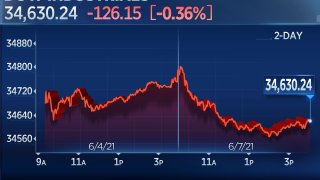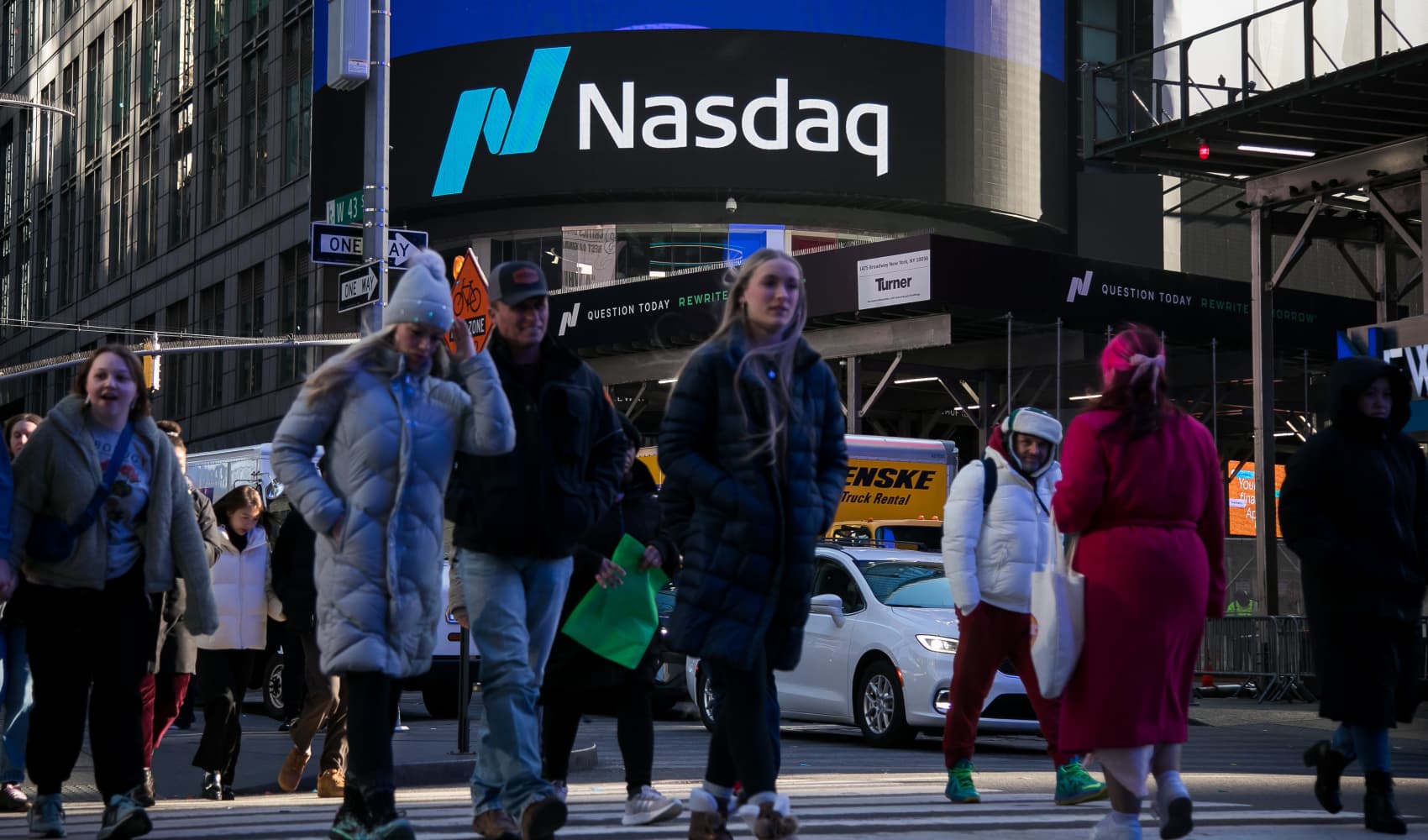
The S&P 500 fell slightly on Monday as the benchmark struggled to make a run at a record high after a winning week.
The broad equity benchmark dipped about 0.1% to 4,226.52, sitting 0.3% from its intraday record high earlier in May. Materials and industrials were the biggest losing sectors on Monday, weighing on the S&P 500. The Dow Jones Industrial Average fell 126.15 points, or 0.4%, to 34,630.24. The Nasdaq Composite eked out a 0.5% gain at 13,881.72.
Meme stocks were back in the spotlight again this week. AMC rallied as much as 25% on Monday and closed nearly 15% higher, while GameStop and BlackBerry also popped double digits. Most of these speculative stocks slid into the red last Friday — despite massive gains — after volatile trading.
Get top local stories in Southern California delivered to you every morning. >Sign up for NBC LA's News Headlines newsletter.
Major stock benchmarks came off a winning week on rising optimism of the ongoing economic reopening. The S&P 500 advanced 0.6% last week to bring its 2021 gains to more than 12%. The Dow and Nasdaq also posted gains last week.
"Stocks have climbed back toward record-high territory as the pace of the economic recovery appears to be well-balanced," said Craig Johnson, chief market technician at Piper Sandler. "Signs of rising inflation have mostly been offset by rising subscriptions to the Fed's 'transitory' outlook."
Visa shares gained slightly on Monday following an upgrade by Piper Sandler.
Money Report
Friday's jobs report showed the unemployment rate dropping to 5.8% from 6.1% and that 559,000 jobs were added in May. The report was seen as strong enough to keep investors' confidence in the economy, but light enough to keep the Federal Reserve from rushing to change its easy money policies.
Investors are focused on inflation data in the week ahead, with May's Consumer Price Index (CPI) scheduled to be released Thursday. In April the CPI rose 4.2% from the previous year, the fastest increase since 2008. If prices continue to rise it could cause the Federal Reserve to step back from its easy policies.
Over the weekend the G-7 nations reached an agreement on global tax reform, calling for the world's largest corporations to pay at least a 15% tax on their earnings. Major companies including Facebook and Google have responded favorably to the agreement.






